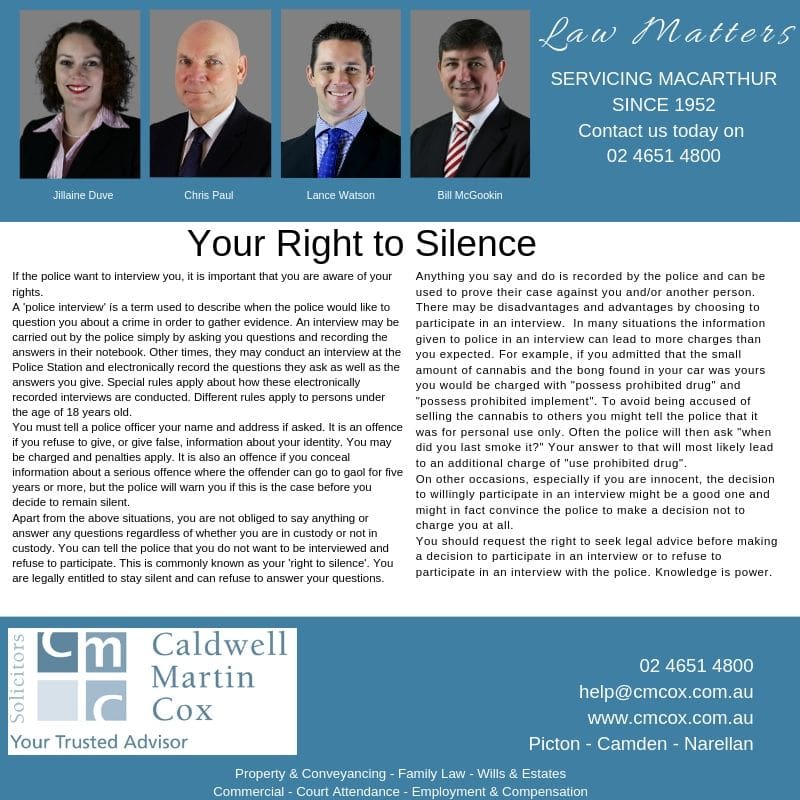What do you do if you find yourself being questioned by Police? What should you say – or not say? In our latest article in The District Reporter, we discuss your options.
If the police want to interview you, it is important that you are aware of your rights.
A ‘police interview’ is a term used to describe when the police would like to question you about a crime in order to gather evidence. An interview may be carried out by the police simply by asking you questions and recording the answers in their notebook. Other times, they may conduct an interview at the Police Station and electronically record the questions they ask as well as your answers you give. Special rules apply about how these electronically recorded interviews are conducted. Different rules apply to persons under the age of 18 years old.
You must tell a police officer your name and address if asked. It is an offence if you refuse to give, or give false, information about your identity. You may be charged and penalties apply. It is also an offence if you conceal information about a serious offence where the offender can go to gaol for five years or more, but the police will warn you if this is the case before you decide to remain silent.
Apart from the above situations, you are not obliged to say anything or answer any questions regardless of whether you are arrested or not in custody. You can tell the police that you do not want to be interviewed and refuse to participate. This is commonly known as your ‘right to silence’. You are legally entitled to stay silent and can refuse to answer your questions.
Anything you say and do is recorded by the police and can be used to prove their case against you and/or another person.
There may be disadvantages and advantages by choosing to participate in an interview. In many situations the information given to police in an interview can lead to more charges than you expected. For example, if you admitted that the small amount of cannabis and the bong found in your car was yours you would be charged with “possess prohibited drug” and “possess prohibited implement.” To avoid being accused of selling the cannabis to others you might tell the police that it was for personal use only. Often the police will then ask “when did you last smoke it?” Your answer to that will most likely lead to an additional charge of “use prohibited drug.”
On other occasions, especially if you are innocent, the decision to willingly participate in an interview might be a good one and might in fact convince the police to make a decision not to charge you at all.
You should request the right to seek legal advice before making a decision to participate in an interview or to refuse to participate in an interview with the police. Knowledge is power.




